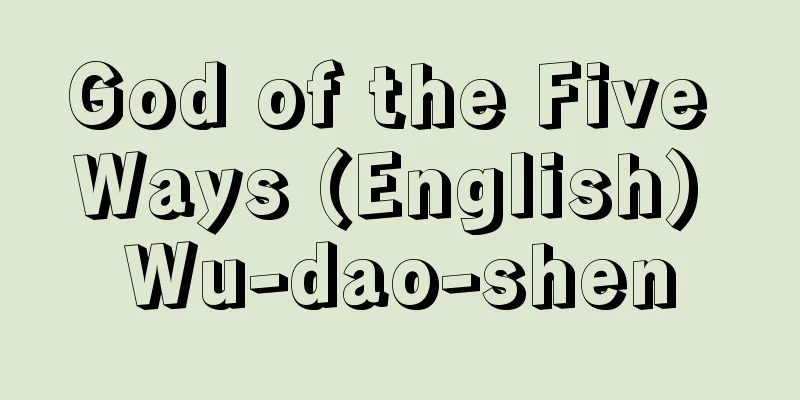God of the Five Ways (English) Wu-dao-shen

|
A Chinese road god. Also known as the Gongshen, the Taoist God, or the Ancestor God. According to legend, it is worshipped as the deity Xiu, the son of Gonggong, or as the son of the Yellow Emperor, Leizu. In folklore, it is thought to have originated from an ancient ritual to exorcise evil spirits (soul-sweeping) against dangers associated with military campaigns and travel. Source: Encyclopaedia Britannica Concise Encyclopedia About Encyclopaedia Britannica Concise Encyclopedia Information |
|
中国の道路神。行神,道神,祖神とも呼ばれる。伝説によれば,共工氏の子の脩,あるいは黄帝の子の累祖を祀るとされるが,民俗的には,古代の軍行や旅行に伴う危険に対する厄払い (魂振り) の儀に起源があると考えられる。
出典 ブリタニカ国際大百科事典 小項目事典ブリタニカ国際大百科事典 小項目事典について 情報 |
Recommend
Limit number - limit number
...Such a generalized number is called an ordinal...
black bile
...In stark contrast to the traditional Chinese a...
Aragekaenso - Aragekaenso
...The flower has four stamens and one pistil, wh...
Eastern Region Transmission Catalog - Touki Dento Mokroku
A catalog of Buddhist books from the Heian period....
Jean Nicot
1530?-1604 French grammarian and linguist, and roy...
Acanthosomatidae
…General term for insects in the family Acanthoso...
Drawers
A pair of loose, short-legged undergarments worn b...
Cutting knife
...It was known for its sharpness and was an indi...
Obruchev Memorial Award
…He was also famous as a science fiction writer, ...
ICI - I C I
Abbreviation for Imperial Chemical Industries PLC...
Edokko - Edokko
Residents of Edo or citizens of Edo were called E...
spherical coordinates
…When a Cartesian coordinate system is given in s...
Toraku
A method of expressing cultivated land area unique...
Choreographe (English spelling)
…In France, quadrilles and coryphées are collecti...
Variables - Transformation
A letter that represents a quantity that can vary...









